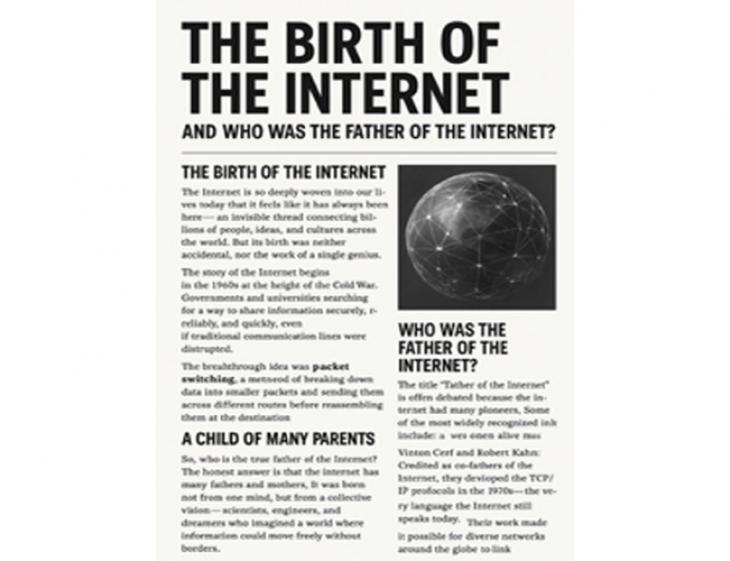
By Publisher Ray Carmen
The Internet is so deeply woven into our lives today that it feels like it has always been here an invisible thread connecting billions of people, ideas, and cultures across the world. But its birth was neither accidental nor the work of a single genius. Rather, it was the result of decades of innovation, collaboration, and vision.
The Birth of the Internet
The story of the Internet begins in the 1960s at the height of the Cold War. Governments and universities were searching for a way to share information securely, reliably, and quickly, even if traditional communication lines were disrupted.
In 1969, the U.S. Department of Defense’s ARPANET (Advanced Research Projects Agency Network) went live. This experimental project connected four university computers — at UCLA, Stanford, UC Santa Barbara, and the University of Utah — in what would become the very first “internet.”
The breakthrough idea was packet switching, a method of breaking down data into smaller packets and sending them across different routes before reassembling them at the destination. This approach made communication faster, more efficient, and more resilient than traditional telephone circuits.
Who Was the Father of the Internet?
The title “Father of the Internet” is often debated because the Internet had many pioneers. Some of the most widely recognized include:
-
Vinton Cerf and Robert Kahn: Credited as co-fathers of the Internet, they developed the TCP/IP protocols in the 1970s — the very language the Internet still speaks today. Their work made it possible for diverse networks around the globe to link together seamlessly.
-
Leonard Kleinrock: A UCLA professor who developed the theory of packet switching, laying the conceptual foundation of network communication.
-
Tim Berners-Lee: Often called the father of the World Wide Web, he invented the system of web pages and hyperlinks in 1989, which transformed the Internet from a technical network into a global information-sharing platform.
-
Other Visionaries: People like Paul Baran, J.C.R. Licklider, and Donald Davies also played pivotal roles in designing, theorizing, and pushing the technologies that became the Internet.
A Child of Many Parents
So, who is the true father of the Internet? The honest answer is that the Internet has many fathers and mothers. It was born not from one mind, but from a collective vision — scientists, engineers, and dreamers who imagined a world where information could move freely without borders.
The Legacy
Today, over 5 billion people use the Internet daily. It fuels economies, education, communication, and even revolutions. The “birth” of the Internet wasn’t a single event, but rather a series of innovations that together gave us the digital lifeline we depend on today.
The Internet may not have one father, but it has given birth to a global community — all of us, connected.




